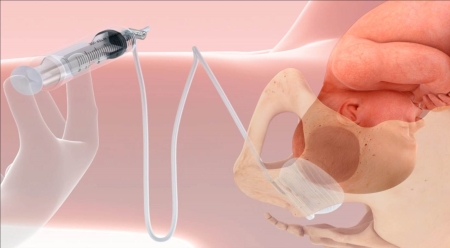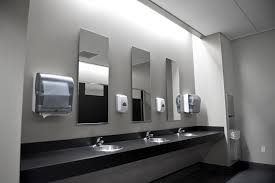The winners of the Product Class of the 2013 Building Better Healthcare Awards are
Award for Best Health Technology Product
This award recognises an outstanding healthcare IT or technology product that is helping to improve productivity and patient safety and/or enhance treatment pathways
Winner: Brain-in-Hand (Brain-In-Hand)
Brain-in-Hand is an innovative SmartPhone solution that helps people with conditions like Asperger’s Syndrome and high-functioning autism to manage their lives.
Daily schedules, solutions to everyday activities, and a ‘traffic light’ monitoring system help them to deal with difficult situations and access support if needed.
Using a person-centred approach, the solution reduces the need for traditional clinical contact time, but provides data that can be easily shared between healthcare professionals.
Brain-in-Hand improves patient confidence, helps individuals continue to make more independent decisions as they develop strategies to solve problems, while at the same time reducing need for clinical support
All responses are logged and anxiety levels recorded, so that coping strategies can be continually refined and developed.
Brain-in-Hand meets a healthcare priority in relation to the social care response to the Autism Act and other therapeutic areas - acquired brain injury, ischemic strokes, early stage Alzheimer’s and Dementia care.
Assistive technology of this kind is increasingly recognised by the NHS as helping to reduce clinical contact and costs.
Since its launch, Brain-in-Hand has received impressive feedback, with patients and clinicians involved in the design and testing.
A prototype trial involved eight adult students with Asperger's Syndrome at the University of Portsmouth; and a 13-month trial with Devon Partnership NHS Trust saw 35 users and 41,000 pieces of data feed into the clinical project management programme. There are now 20 clients involved in a 12-month trial at the Isle of Wight Partnership Trust.
The judges said of the innovation: “We really love this concept, which encourages patients to remain independent, but to access any help and support they may need.”
Licensing of Brain-in-Hand is priced at £1,000 per user per year - under £20 a week and less than one hour a week of a junior clinician's time.
A company spokesman said: “Brain-in-Hand improves patient confidence, helps individuals continue to make more independent decisions as they develop strategies to solve problems, while at the same time reducing need for clinical support.”
Award for Best Medical Device
This award is for outstanding medical equipment that has directly facilitated the delivery of healthcare services and safer care
Winner: The Fetal Pillow (Safe Obstetric Systems)
The Fetal Pillow is a unique medical device designed to increase safety of both mother and baby during caesarean sections at full dilation resulting in a difficult procedure being performed more easily, quickly and with less trauma.
Caesarean section at full dilation (CSFD) can be a technically-demanding procedure and has a consistent association with intra-operative trauma - laceration injuries to uterus, cervix and vagina - leading to increased blood loss and the need for transfusion, admission to an intensive care unit, increased operation time and hospital stay. This is often also accompanied by increased morbidity for the baby.
Intra-operative complications account for the majority of morbidity related to a CSFD. These often occur as a result of the increased manipulation required for delivery of the head due mainly to the head being wedged deep in the pelvis.
The Fetal Pillow is a balloon device that lifts the baby’s head safely out of the pelvis prior to caesarean incision, thus avoiding the difficulties that result in the high complications.
This simple-yet-effective solution has decreased blood loss and extension of uterine incision in second stage caesarean sections
The benefits are primarily from the increased patient safety achieved for both mother and baby. In addition, the cost benefit associated with the use of the Fetal Pillow includes better patient outcomes and reduced costs of managing complications and potential litigation.
Fetal Pillow was born directly from the experience of a UK obstetrician who experienced a tragic situation during a CSFD.
Dr Beverley Adams of Craigavon Area Hospital in Northern Ireland said: “The Fetal Pillow is a new concept that has reduced risk to mother and baby and resulted in shorter and less complicated stays in hospital, in turn reducing costs. It is now used within our unit to consistently improve quality of care.”
Dr Sikhar Sircar, a consultant obstetrician and gynaecologist at NHS Lanarkshire, added: “This is clearly a long-awaited innovation to help reduce maternal and neonatal morbidity.
“It is simple to use, effective in action and makes an objective difference to a mother’s health and wellbeing. This simple-yet-effective solution has decreased blood loss and extension of uterine incision in second stage caesarean sections.”
Choosing it as their winner, the judges said: “Women who are in labour and need to have a caesarean section find this is difficult and very unsafe and unsatisfactory as the surgeon has to get the baby’s head out of the pelvis. This process is problematic and typically can result in head and neck injuries to the baby and loss of blood for the mother. This device goes in through the vagina and inflates to pop the head out safely. It really is very clever.”

The Fetal Pillow from Safe Obstetric Systems won the Award for Best Medical Device title
Award for Best Building Product
This award is for an outstanding building product or item of equipment that is integrally installed within a healthcare environment
Winner: Axgard MSR (Clear Amber)
Imagine glass that doesn’t smash; a surface that doesn’t scratch when cleaned; a surface that spraypaint and marker pen doesn’t stick to; a plastic that doesn’t melt like wax - this unique mirror ticks all the boxes.
Axgard-MSR provides the answer to so many problems.
This is a really good product with many potential uses within the healthcare sector, from mental health facilities to public toilets in general A&E departments
Combining unbreakable polymer resilience with a specially-formulated, tough, UV-protected, scratch-resistant coating, it holds the key to success for many projects globally.
Very much at home in highly-destructive, sensitive and impact-prone environments, the core strength of Axgard-MSR lies at the heart of its success, and the added benefit of tough abrasion-resistance and anti-graffiti properties makes it a favourite with healthcare professionals, architects and contractors alike.
Axgard-MSR can be bonded to any flat substrate or mechanically fixed. In demanding, high-security applications, a combination of both provides an extra safeguard.
Anti-ligature edge-finishing options are available, with neatly-bevelled edges and radiused corners proving immensely popular throughout the healthcare sector.
The judges said: “This is a really good product with many potential uses within the healthcare sector, from mental health facilities to public toilets in general A&E departments.”

Axgard MSR was the winner of the Award for Best Building Product
